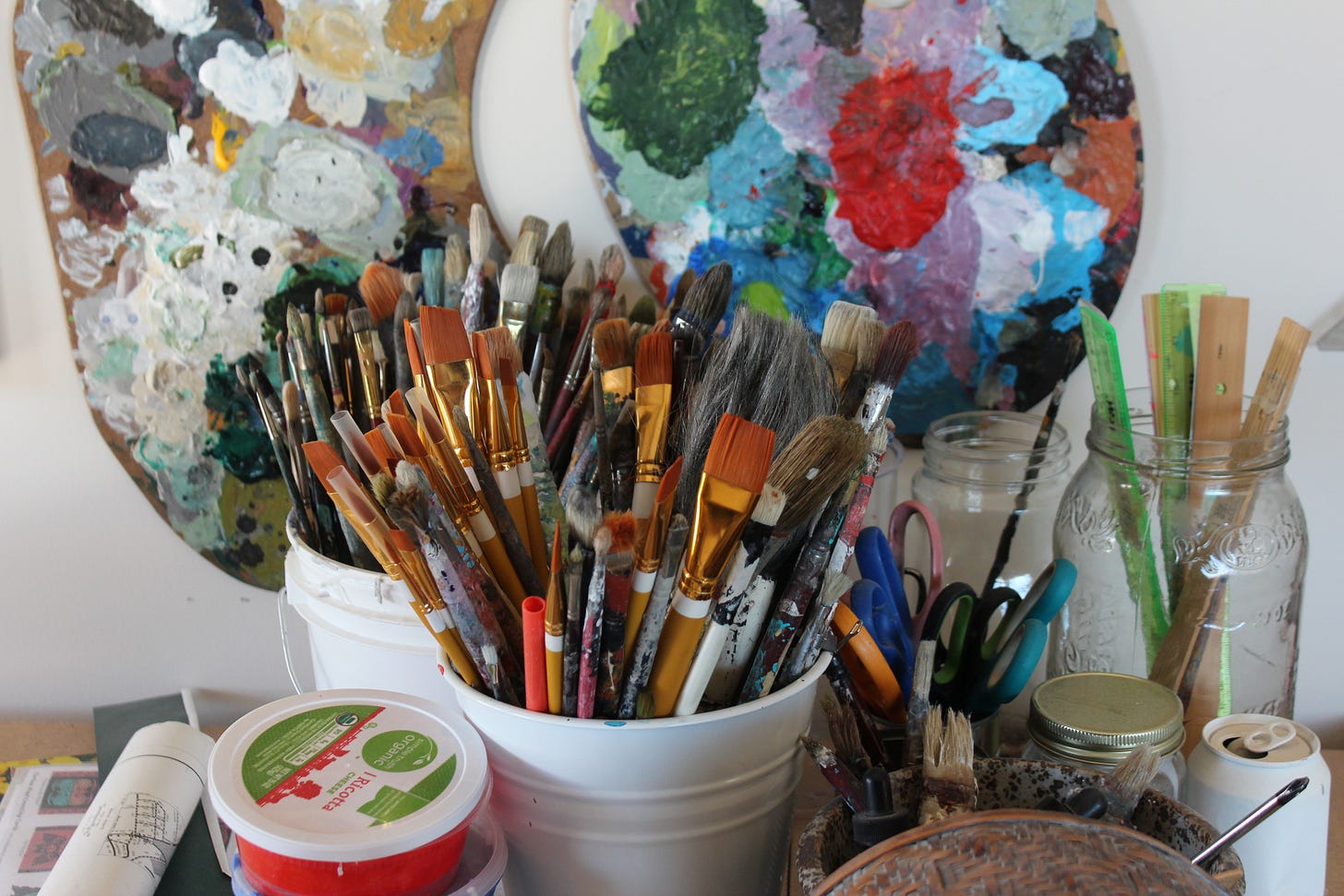Developing your intuitive knowing must be a lifelong foundational practice.
Intuition is an artist’s greatest asset; it is your 6th sense. Its importance cannot be overstated. This is your inner knowing that will allow you to navigate your life on a minute-to-minute basis. This is a subject that deserves a lot of study and attention. Developing your intuition will require the clearing out of the mind (thought) and heart space (feeling).
You want to be able to quiet your mind so that it is placid like a fishpond that allows you to see the fish swimming around under the surface. The heart must be as clear of emotions as possible because they are like clouds keeping you from seeing the light of your intuitive impulses which are more subtle than emotions.
“The difference between mind and heart is that the mind is the surface of the heart, and the heart the depth of the mind: they are two different aspects of one and the same thing. The mind thinks, the heart feels. What the heart feels the mind wants to interpret in thought; what the mind thinks, the heart assimilates expressing it in feeling. Neither is the mind the brain, nor is the heart a piece of flesh hidden under the breast. Those who do not believe in such a thing as the mind think that thoughts and impressions are in the brain, that a person thinks with his brain. It is not true. The brain only helps to make impressions clear to man's material vision.” Hazrat Inayat Khan - The Art of Being
Starting a practice of meditation daily is very important. I think Vipassana or Zazen meditation is a good place to start. Look it up online for how to do it – it is very simple. Or find a local group. You can eventually turn your art making process into a form of meditation or even make your whole day into meditation.
There are many different techniques of meditation and of breathing practices. Once you establish yourself in daily 2 minute, 5 minute, 10 minute, 20 minute meditations you can explore other forms of meditation and mindfulness techniques.
An artist needs to carve out quiet time to get started with meditation and to become established in meditation. A lot of meditators meditate for up to an hour but you can start with a few minutes. However, getting into the deeper states of quietude takes more time. It takes a while for your mind to quiet down and relax. This develops intuition. Intuition is how you have your inner conversation with your art and your life in general.
Another thing is to spend as much time as possible each day ‘unplugged’. I personally have my phone set to not make any noises, then, when I choose to, I look to see if there is anything that requires my attention. Do not respond to things that are not important. Quiet is the general rule. This might seem isolating for some, but it is the best way to keep your focus on your daily work.
Staying attentive, aware and focused is an important discipline. Eliminate distractions. An artist must develop self-discipline in order live a free life. Most people’s lives are driven by constant outside demands, and by other people’s schedules. This can eat up all your time. You must take control of your own day. Be efficient, be vigilant. This isn’t to say that you shouldn’t do the things you must do but you can slowly, over a few weeks or months, redesign your life to match up with Rule #1.
In conjunction with meditation, take up the practice of writing in a journal every day. You can start your first entry with Rule #1 and then start writing something. I have written in journals and sketchbooks off and on over the years. It is better on and not off. So, write something every day and date it. My collage making has been my main form of journaling. I have completed a collage on average every three days since 1983. But I wish I could also say that I have made a journal entry every day during that time.
Related:




I draw for an hour or so in the morning when I wake up. I think best with a pencil in my hand. Drawing slows down time and sets a good tone for the rest of the day.
"Another thing is to spend as much time as possible each day ‘unplugged’. I personally have my phone set to not make any noises then, when I choose to, I look to see if there is anything that requires my attention." Great advice. I also keep my phone on silent unless I'm expecting something urgent or important. I also like your image of the pond and looking beneath the surface.